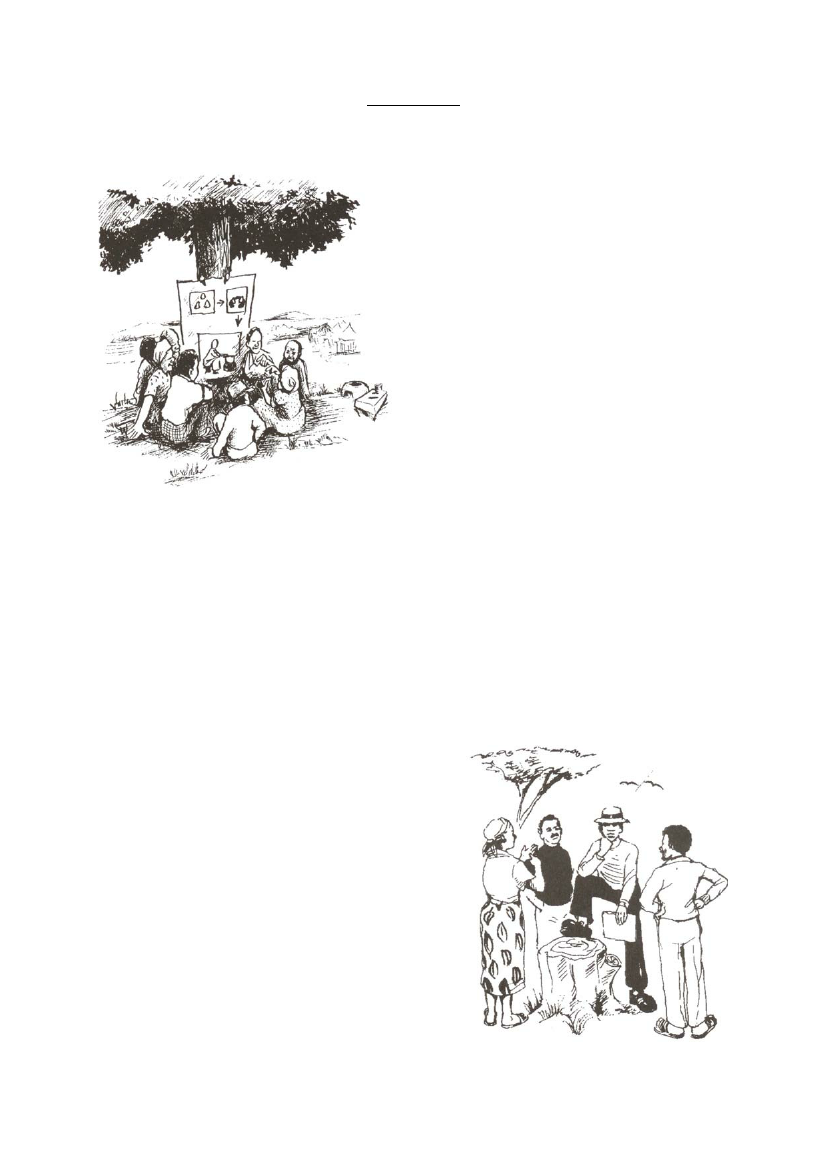
Chapter Six
Ideas on Dissemination
Consultation
Figure 6.1 Consulting the community is vital
Improved stove dissemination involves planning
for the implementation of field activities. The
approach used may differ from one community to
another but there are basic aspects that ensure
effective dissemination.
Before the implementation of activities the
community should be consulted. This helps the
implementer understand the needs of the
community. Consultation is required in order to
assess the needs and to find out the existing stove
technologies, skills, materials and capacity to build
the stoves.
The main benefit of involving the
community from the beginning is to develop the
technology with them. It becomes their technology
and ensures sustainability. It also helps the
promoter to learn from the community as the
community learns from the promoter.
Giving people options
During the actual implementation of the stove technologies, it is important to give the communities
technology options because individual perceptions of benefits differ even in the same community. The
promoter needs to be very flexible and willing to adapt acceptable technologies with the community.
Unless the promoter understands the community needs including such aspects as the uses of
the fire, cooking habits and the roles of the man and the woman in mud stove making, correct options
for mud stoves cannot be achieved.
Options in stove technology and choices in stove design are necessitated by inherent
differences between communities, areas, sectors and social categories. When communities are given
choices and options of technologies, they are able to choose what is suitable for their needs. This
allows for flexibility and in the long run enhances the development of new innovations.
Partners
The involvement of the existing administrative and
community-based structures, line ministries, non-
governmental organizations (NGOs) churches and
mosques could enhance adoption but can also hinder if
not well identified and planned.
Networking
Sharing of information as it helps mud stove promoters
to learn from each other. A well informed promoter or
producer understands the need for quality products. The
fundamental aspect in networking is exchange of
information and ideas. Through this, quality
technologies are easily taken up.
It has been recognised that mud stove
promoters face similar problems while disseminating
stoves. One unique problem faced by many promoters
is lack if information about the basic principles of
Figure 6.2 Sharing information is vital
29